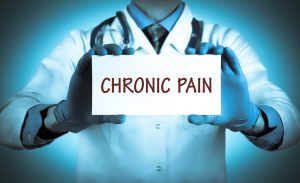Holistic Approach To Chronic Pain
Millions of people worldwide have to deal with the difficult road of chronic pain. Traditional pain care frequently relies on drugs that only temporarily cover the symptoms, but an increasing number of people are looking for a more thorough and long-lasting holistic approach to Chronic pain
Can a Holistic approach to chronic pain help people live better lives or maybe entirely heal them is one of the most thought-provoking questions for which people hunt on the internet. Let us learn and get more insight into how a holistic approach to chronic pain helps people.
Understanding Chronic Pain:

Nowadays millions of people are suffering from chronic pain and when this suffering becomes challenging people hunt to know What is Chronic pain and how it can be eased.
In simple words, any discomfort that lasts longer than 3-6 months is normally considered to be chronic. Even though both acute and chronic pain may start due to an injury or tissue damage, acute pain will go away when the underlying cause of the pain is removed.
Contrary to acute pain, which is the body’s normal reaction to injury or sickness and usually goes away as the body recovers, chronic pain lasts long after the initial injury or illness has healed.
A person’s quality of life, physical capabilities, mental well-being, and everyday activities can all be profoundly impacted by living with chronic pain. Sleep issues, lethargy, mood swings, and decreased productivity could result. Chronic pain frequently needs a comprehensive approach to management and treatment.
Symptoms of Chronic pain:

Chronic pain is a long-term condition characterized by constant, ongoing pain. Although the signs of chronic pain can vary greatly, some common chronic pain symptoms include:
- Mild to moderate aching, dull, searing, stabbing, or throbbing pain in any one or more parts of the body.
- Difficulty to carry out everyday tasks, work, or pursue leisure activities might be greatly impacted by chronic pain.
- Physical function restrictions and decreased mobility.
- Trouble falling asleep, difficulty remaining asleep
- Feeling exhausted.
- Chronic discomfort can drain one’s energy physically and mentally.
- Emotional distress feelings of helplessness, helplessness, irritation, worry, and sadness.
- Depression, anxiety, and stress are some of the illnesses that chronic pain can cause or make worse.
- Changing weight, and eating habits can cause nutritional imbalances.
- Less social interaction and a retreat from social activities.
Causes of Chronic pain:

Numerous underlying illnesses can cause persistent or chronic pain. A person’s quality of life can be improved and chronic pain can be effectively managed with the right diagnosis and timely treatment. To name, some common chronic pain causes are:
- Arthritis
- Fibromyalgia
- Neuropathic disorders
- Migraines
- Musculoskeletal injuries
- Past injuries or Surgeries
- Chronic inflammation
- Autoimmune disorder
- Post-surgical pain syndrome
- Degenerative disease
- Psychological factors
Understanding the holistic approach to chronic pain:

Being a complex condition, chronic pain requires an all-encompassing strategy that takes the following factors into account:
- Physical Healing: The foundation of the holistic approach is physical healing. It entails determining the underlying causes of pain and applying a variety of therapeutic treatments, including massage, chiropractic adjustments, and physiotherapy. These treatments support the body’s innate healing mechanisms in addition to addressing the physical symptoms of pain.
- Mind-Body connection: Integrative pain management must take into account the mind-body link. A vicious cycle of suffering can be created by emotional stress and mental health problems, which can amplify the experience of pain. People can better control their pain by using methods like yoga, deep breathing exercises, and mindfulness meditation to manage stress and anxiety.
- Diet and nutrition: People with chronic pain can attest to the truth of the proverb “You are what you eat.” While certain foods have anti-inflammatory characteristics that help with pain relief, others might promote inflammation and increase pain. Chronic pain can be effectively managed with a well-balanced, nutrient-dense diet that is high in fruits, vegetables, and healthy fats.
- Rest and Sleep: Adequate rest and sleep are essential for healing and pain reduction. Chronic pain can interfere with sleep cycles, creating a vicious cycle of insomnia and agony. A holistic strategy places a strong emphasis on establishing a relaxing environment for sleep, maintaining excellent sleep hygiene, and treating any underlying sleep disorders.
- Lifestyle Changes: Making healthy lifestyle adjustments can have a big impact on how chronic pain is managed. This includes giving up smoking, consuming alcohol in moderation, regulating body weight, and keeping a regular exercise regimen catered to individual skills.
- Remain hydrated: Encourage yourself. It is advised to consume at least eight 8-ounce glasses each day, which is equivalent to 2 liters or half a gallon. Although it might seem obvious, many people sadly do not prioritize and frequently forget to hydrate themselves. It can be helpful to find strategies to keep inspired to stay hydrated. You may quickly be reminded to drink water and stay motivated with the help of a water bottle.
- Having a chronic pain condition can be emotionally stressful. A sense of belonging and understanding that comes from social support from friends, family, or support groups can help people deal with suffering more successfully.
It’s critical to keep in mind that there is no one-size-fits-all method of pain management, regardless of the therapy you select. Complementary and alternative therapy choices can be a wonderful place to start because they are less invasive and have fewer hazards.
Holistic health improvement is a process that takes time; it is not something that happens suddenly. Talk to your provider about the various possibilities available to you while keeping an open mind. One annual consultation with a holistic practitioner can assist you in maintaining your goals and continuing to make healthier decisions for your well-being.
Some Techniques that include a Holistic approach to chronic pain:
The holistic approach to chronic pain management is a revolutionary method of treating pain that takes the relationship of lifestyle, emotional, and physical variables into account. In this blog post, we’ll look at the fundamentals of a holistic approach to treating chronic pain and how it can provide people relief and give them back their life.
Painkillers are frequently the first course of treatment when someone is diagnosed with pain. However, while these drugs may be effective for some people, they may have more side effects than positive ones, ranging from nausea to cardiac problems.
There are several options available for patients who want to investigate a holistic pain management program, either independently or in conjunction with conventional medicine:
- Acupuncture: In Chinese medicine, acupuncture frequently entails the insertion of extremely fine needles into specific body locations. Acupuncture, according to traditional Chinese practitioners, balances the flow of qi or chi, often known as life force or vitality. Western medical professionals view it as a means to stimulate muscles and nerves in a way that encourages healing and the reduction of pain.
- Chiropractor services: The fundamental goal of a chiropractor is to modify and realign the spine and neck in a way that reduces pain, speeds up healing, and enhances overall function. Chiropractic therapy comes in a variety of forms, and chiropractors treat patients using a variety of methods, tools, and supplies.
- Massage Several chronic pain problems have shown promise with therapeutic massage. Massage can assist in reducing tension and anxiety, which can worsen pain in addition to easing aching muscles, tendons, and joints. Swedish, deep tissue, sports, Shiatsu, trigger point, and reflexology are just a few of the many massage techniques available.
- Techniques for reducing stress, such as instruction in mindfulness and meditation: By calming the nervous system and reducing stress, mindfulness, and meditation can also help reduce muscle tension and pain. There are various methods of breathing, relaxing gradually, or using guided imagery as part of meditation and mindfulness training.
Advantages of a Holistic approach to chronic pain:

- Personalized Care: A comprehensive strategy recognizes the individuality of each person’s pain experience. The chance of effective pain management increases when treatment strategies are customized to meet individual needs.
- Reduced Dependence on Medications: While drugs can be helpful in managing pain, a holistic approach aims to cut down on drug use by addressing the root causes of pain and encouraging natural healing.
- Better Quality of Life: Holistic pain management encourages people to actively participate in their own healing processes, which enhances their physical, emotional, and social well-being.
- Long-Term Sustainability: Rather than relying exclusively on temporary relief, people can find lasting relief from chronic pain by adopting lifestyle adjustments and coping methods.
Conclusion:
Utilizing all available resources is another way of emphasizing that treating chronic pain should be approached holistically. The word “holistic” derives from the Greek “holos,” which means “entire” or “whole.”
The fundamental notion in medicine and healing is that a person is more than just a sum of their particular organs, muscles, and blood. Our anatomical parts are interconnected, and our physical bodies are connected to our mental and spiritual identities, according to a holistic perspective.
A new era in pain care, one that acknowledges the multidimensional nature of pain and aims to heal from the inside out, is being ushered in by the holistic approach to chronic pain management.
People with chronic pain can reclaim their lives from the grip of the condition by combining physical therapy, mind-body techniques, healthy eating, and lifestyle changes. Consider adopting a holistic perspective and starting a recovery journey that includes your entire self if you or a loved one are dealing with chronic pain.
FAQs:
What is the best pain medication for chronic pain?
The most suitable pain reliever for chronic pain will depend on the individual’s unique circumstances, the underlying cause of the pain, and other elements like medical history and potential drug interactions. NSAIDs like ibuprofen, naproxen, and aspirin, which are intended to treat mild to moderate pain and lessen inflammation, are frequently used in the management of chronic pain.
Is chronic pain a disability?
Chronic pain may qualify as a disability, but it all relies on how severely it interferes with a person’s ability to do daily responsibilities, particularly those linked to their job. In many circumstances, chronic pain can severely impair a person’s ability to function physically and mentally, making it difficult for them to go about their daily lives or keep a job that pays well.
Can chronic pain cause high blood pressure?
Yes, for some people, persistent pain can lead to hypertension or high blood pressure. Stress Response may play a role in the connection between high blood pressure and persistent pain.
Does chronic pain make you tired?
Yes, You can get excessive tiredness and fatigue from having chronic pain, yes. Chronic exhaustion can result from chronic pain, which can be both physically and emotionally draining.
Can chronic pain cause depression?
Yes, Chronic pain can trigger or worsen depression. Emotional Anxiety, lack of Sleep, lowered physical capacity, changes in neurotransmitters, and Social isolation have resulted from chronic pain and lead to depression.
Is holistic approach to chronic pain an effective treatment?
Yes, a holistic approach to chronic pain may be successful and all-encompassing. The goal of holistic treatment is to address the underlying causes of chronic pain and enhance the overall quality of life by taking into account a person’s physical, emotional, psychological, and social well-being.
References:
- https://pubmed.ncbi.nlm.nih.gov/26172982/
- https://www.ncbi.nlm.nih.gov/pmc/articles/PMC8371880/
- https://uspainfoundation.org/blog/holistic-approaches-to-chronic-pain/
- https://firststepbh.com/addiction-treatment/holistic-pain-management/
Read Also:
https://www.medsengage.com/blog/6-ways-to-alleviate-your-chronic-pain/

